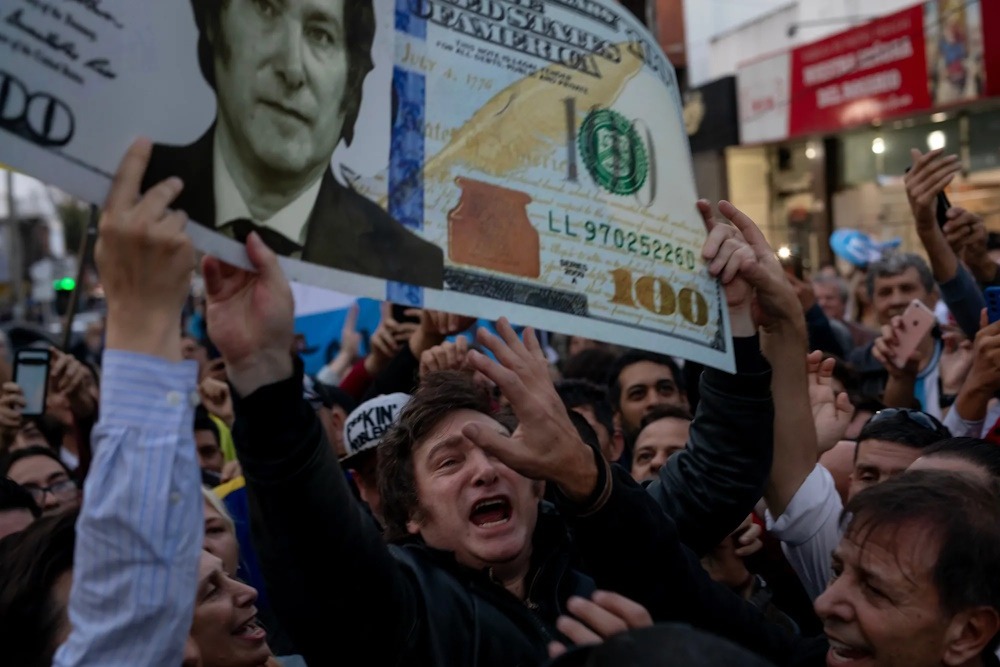Argentines are well aware of their historical context, having indulged in spending sprees previously funded by the Central Bank, which consistently culminated in economic disaster: during the late 1970s, the 1990s, and the mid- to late 2000s. Milei faces the significant challenge of persuading them that the status quo will not persist. In the initial four months of this year, Brazil recorded an unprecedented influx of foreign visitors: 4.4 million individuals. Fifty percent of them were Argentine. During that same timeframe, imports increased by 35.7 percent compared to the previous year. In the interim, the trade surplus diminished to US$1.2 billion, a notable decline from US$6.2 billion recorded in the previous year.
Inflation reduction is broadly welcomed by voters; however, middle- and upper-class Argentines are beginning to enjoy the benefits significantly. The recent decision by the government to lift most currency restrictions allows individuals earning a salary in pesos to freely purchase US dollars through home banking. With those dollars, one can realize their dream trip abroad or acquire goods via Amazon, now conveniently delivered to one’s doorstep and nearly tax-free. As the World Cup approaches in the United States, Canada, and Mexico next year, many individuals are poised to strategize their travel plans, anticipating that Lionel Messi will showcase his final performance.
It is not unexpected, therefore, that President Milei’s candidate, Manuel Adorni, emerged victorious in the elections in Buenos Aires City last week, nor that he notably secured support from the wealthiest segments of the population. The defeated centre-right opposition, former president Mauricio Macri’s PRO party, does not oppose Milei’s economic programme – on the contrary, the party’s candidate, Silvia Lospennato, was one of the most vocal supporters of the government’s economic policies last year from her seat in the lower house Chamber of Deputies. Collectively, the two are poised to form an alliance as Buenos Aires Province approaches its vote on September 7, having secured 45 percent of the votes.
What does Milei seek in exchange? Straightforward: US dollars return. Milei and Economy Minister Luis Caputo are not the first – and likely will not be the last – Argentine leaders who think their governing lives would be significantly simplified if Argentines chose to bring the approximately US$250 billion they have, figuratively, “under their mattresses.” If it were that straightforward, it would have occurred previously. However, the administration asserts that the situation is distinct this time: absent a fiscal deficit, the government will refrain from printing pesos; consequently, with a reduced supply of pesos, Argentines seeking to consume will be compelled to utilize their saved dollars. The influx of dollars will, consequently, bolster the reserves of the Central Bank.
It is simpler to articulate than to execute. Argentines are well aware of their historical context, having indulged in spending sprees previously funded by the Central Bank, which consistently culminated in economic disaster: during the late 1970s, the 1990s, and the mid- to late 2000s. Milei faces the significant challenge of persuading them that the status quo will not persist. It is undeniable that the President appears poised to maintain a disruptive approach, even as he likely consolidates power during this year’s midterm elections. His chainsaw on spending remains fueled. Following three consecutive months of increases, primary government spending in April experienced a decline, falling by 1.2 percent year-on-year. This places the administration in a robust position to achieve – and likely surpass – the fiscal target outlined in the agreement signed last month with the International Monetary Fund (IMF).
The majority of the government’s budget reductions this month were concentrated in energy subsidies, reflecting a decrease of 78 percent in real terms compared to the previous year. Despite that, the government declared this week its intention to abolish the remaining energy subsidies for residents of the affluent area of Puerto Madero and the opulent gated communities in the outskirts of the capital. It is reasonable to assume that almost all individuals residing in those regions cast their votes in favor of Milei in 2023. Regardless of whether the “mattress dollars” plan yields results, it is encouraging to see that the government recognizes the vulnerabilities within its economic strategy. In their pursuit of an anti-inflation strategy, Milei and Caputo have opted to overvalue the peso as a critical anchor. To address the outflow of hard cash, they have implemented measures such as postponing import payments, introducing the “blanqueo” tax pardon, and negotiating a US$20-billion agreement with the IMF.
In the near future, Caputo suggested this week that pursuing debt from voluntary international markets may be imminent: “in the short term” and “hopefully this year,” to be precise. This indicates that the government will turn to increased borrowing to satisfy the challenging reserves accumulation target established by the IMF agreement – it is presently approximately US$6 billion short, with the first review scheduled for mid-June. It is not unprecedented for Argentina that a whirlwind of votes necessitates a black hole of US dollars. The issue at hand? Black holes present a significant challenge – if not an insurmountable one – to fill.

